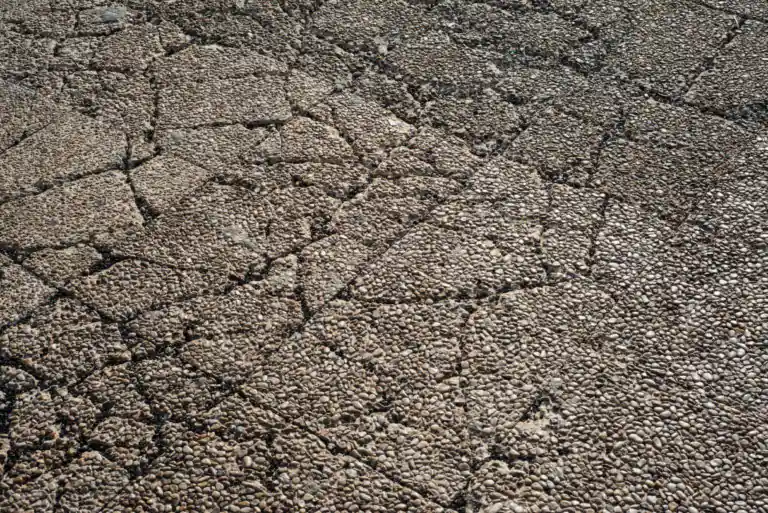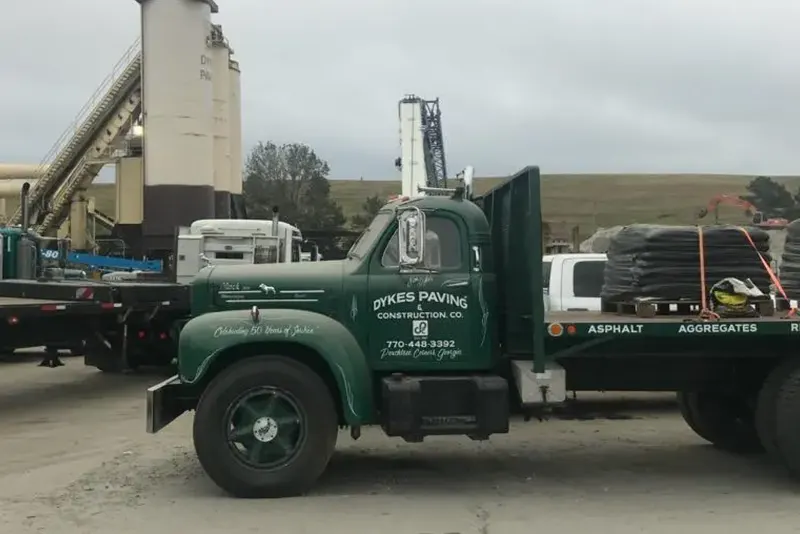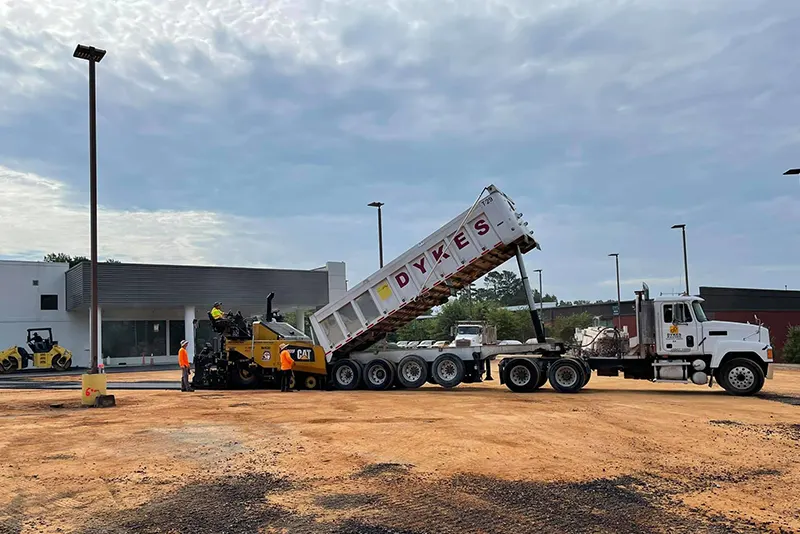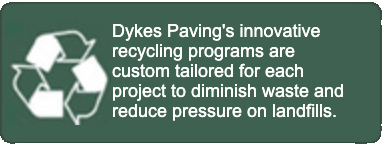
The US recycles well over a quarter of what can be considered “solid waste” products, and it may be surprising to some people that asphalt is actually the leading recycled product. 80 percent of this black material is recycled and used again. This is known as “reclaimed asphalt pavement,” “RAP,” or just “green asphalt pavement” to some. It can be said that the asphalt industry is the “greenest” around, as it recycles twice the material of paper, plastic, aluminum put together.
More Effective
Believe it or not, “green asphalt pavement” or recycled asphalt is actually higher quality, and more durable than brand new, virgin asphalt.
Requires Less Energy, and it’s Easy to Make
Recycled asphalt paving requires about 20 percent less energy than other pavements. Plus, the time it takes to create recycled asphalt paving is much less than other pavements, so roads can be created and repaired in a snap.
Highly Repairable
Unlike other pavements, asphalt can be easily fixed using crackfilling and various other products to increase its lifespan.
Saves Money While it Saves the Planet
Recycled asphalt or “green asphalt paving” saves U.S. taxpayers almost $2 billion, annually, and it obviously saves acres upon acres of landfill space.
Helps Recycle Other Materials
Pure asphalt doesn’t just become pure asphalt again, once it’s recycled. Chances are, various other materials have been added into the recycled asphalt mix, as a means for recycling those materials. These recycled asphalt mixes may include things like asphalt roofing shingles, rubber from old tires, metal casting, etc.
Reduces Emissions
Since 1970, the asphalt industry has managed to decrease emission by almost 100 percent, while managing to increase production by 250 percent! One of the best things about recycled asphalt is that virtually no harmful emissions are created in the process – what is emitted however, is almost all steam. This is from heating rock, gravel, and sand to the required 300 degrees to mix with the asphalt oil, which is the “binder” or glue that holds the other natural materials together, and which gives asphalt its black color.
It Doesn’t Have a Negative Aspect, to Date
Recycled asphalt pavement only seems to carry positive weight, and it’s downsides seem virtually non-existent. Still, this wasn’t the case about 20 years ago. As early back as the early 90’s, the asphalt industry did not produce their product very efficiently, billions were spent on creating it, and they had very little concern for their environment or the future of the planet. Thankfully, this has all changed, and today’s asphalt paving contractors are extremely environmentally sensitive, and are proud to be working with an innovative product that’s just as efficient as it is cost-effective.
If you’re interested in having recycled asphalt pavement in your commercial setting, don’t hesitate to contact Dykes Paving, your “green commercial paving contractors in Atlanta!








